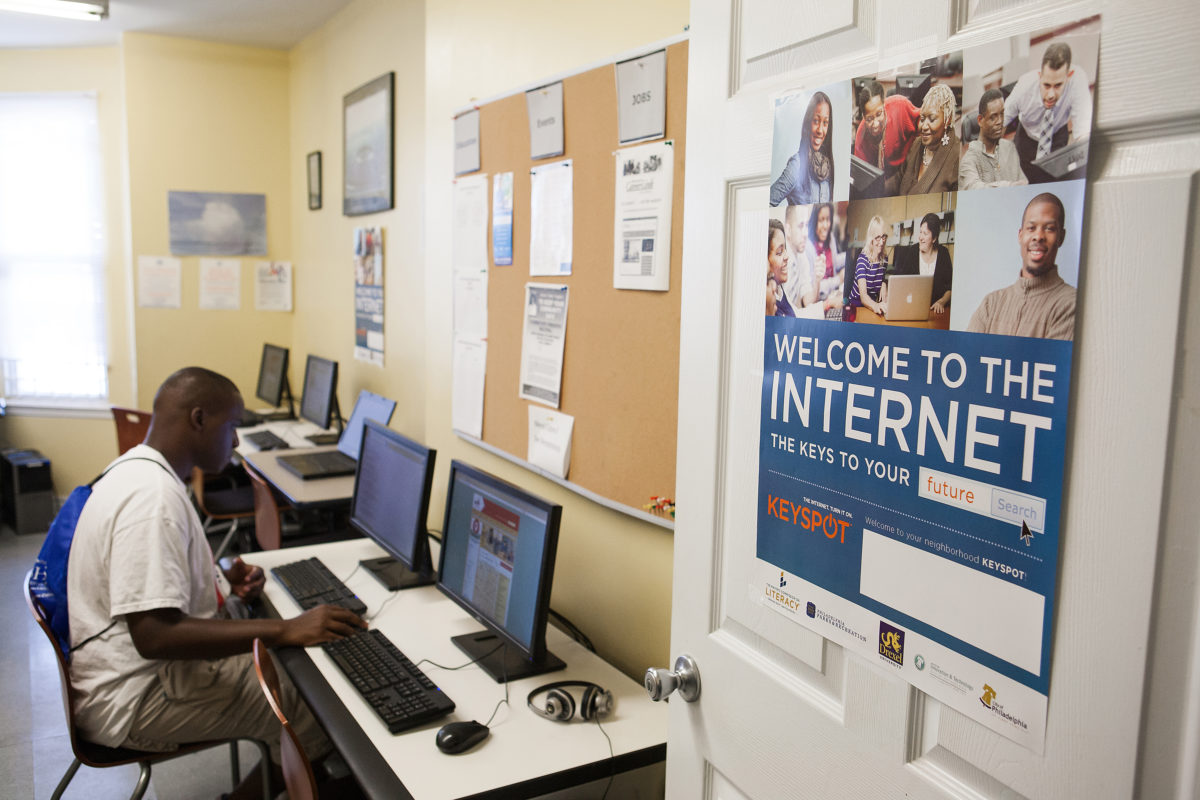If you were going to rally together a band of digital literacy advocates, you could do a lot worse than the lineup the City of Philadelphia just put together as part of the Digital Literacy Alliance.
The newly formed 19-organization collective, an initiatiave of the Mayor’s Fund for Philadelphia, features companies like Comcast and Verizon, higher ed institutions like the University of Pennsylvania and Temple University, city government entities like the Office of Innovation & Technology and the Office of Adult Education alongside activism organizations like the Media Mobilizing Project.
With $850,000 in seed funding ($500,000 from Comcast and $350,000 from Verizon), the group is taking on a three-pronged mission: providing financial support to digital literacy and inclusion programs in Philly, convening stakeholders and partners from diverse sectors and offer guidance on digital literacy programming and policy-making.
The first move from the camp is a grant program that, in its first round, will seek to dole out $175,000 from that fund to back 10 projects geared at offering digital education, job readiness, skill-building and access to technology.
Just like any ambitious Philly program focused on digital access would, news of this coalition made our minds flash back to Wireless Philadelphia, the failed attempt to bring a network of low-cost WiFi hotspots to Philly.
But there a couple of key differences that could herald different results this time around.
Having Comcast and Verizon on the table is a major one. Back in the day, Wireless Philadelphia — which both comms giants actively lobbied against — took a less-than-ideal offer from EarthLink, which eventually abandoned the contract.
(Important context here: After the program went bust, the Freedom Rings Partnership — which eventually became KEYSPOT — nabbed some federal funding and established some 70 access points across town. The federal funds later dried up and since then that number has dwindled to 48, but the scrappy KEYSPOT team still managed to provide 41,507 hours of digital literacy and job readiness training.)
Another important aspect not featured last time around: A multiplicity of players leading the charge and getting involved despite their own differences. It’s gotta be a bit awkward for Verizon and Comcast to sit next to an advocacy group like Media Mobilizing Project, which has on more than one occasion offered resistance to both companies on issues like, er, access to digital services.
Life can be funny like that.
But perhaps the most important difference is that this alliance will get to focus its efforts solely on backing education and skill programs, and not in addition to infrastructure and equipment management as KEYSPOT currently does.
The Alliance and its grant program represent a wealth of potential for Andrew Buss, Director of Innovation Management at the City’s Office of Innovation & Technology who largely oversaw the KEYSPOT initiative when it got its start.
“KEYSPOT created a physical and organizational network that supports access to and adoption of technology and the Internet,” said Buss. “Now we have an opportunity to build on that infrastructure by funding creative programs.”
But can this push be sustainable? Per Buss, for the Alliance to survive it needs to show its worth.
“Fortunately, we managed to sustain the bulk of the post-grant Keyspot program because I think everyone realized the importance of the program to Philadelphia’s work around digital literacy,” said Buss. “At the end of the day, funding is what sustains programs so just as with Keyspot, the Digital Literacy Alliance will need to show its value to sustain itself.
From Hannah Sassaman’s chair as Policy Director for the Media Mobilizing Project, that value is not going to come from a top-down edict, but rather from a ground-up exercise in understanding a community.
“This new grant opportunity is going to teach us a lot about the myriad kinds of work that community groups, and other institutions and leaders, are engaging in to help get all of our neighbors across the digital divide,” Sassaman said.
It’s way too early to formulate a verdict on the fate of the Alliance. For the time being, we’ll keep a close eye on the first batch of funded projects from the grant program. They will offer interesting insight into the collective’s playbook for getting to everyone’s desired outcome: Giving all Philadelphians a chance to use the internet just like you, dear reader, are doing right now.
Before you go...
Please consider supporting Technical.ly to keep our independent journalism strong. Unlike most business-focused media outlets, we don’t have a paywall. Instead, we count on your personal and organizational support.
Join our growing Slack community
Join 5,000 tech professionals and entrepreneurs in our community Slack today!

The person charged in the UnitedHealthcare CEO shooting had a ton of tech connections

From rejection to innovation: How I built a tool to beat AI hiring algorithms at their own game

Where are the country’s most vibrant tech and startup communities?

